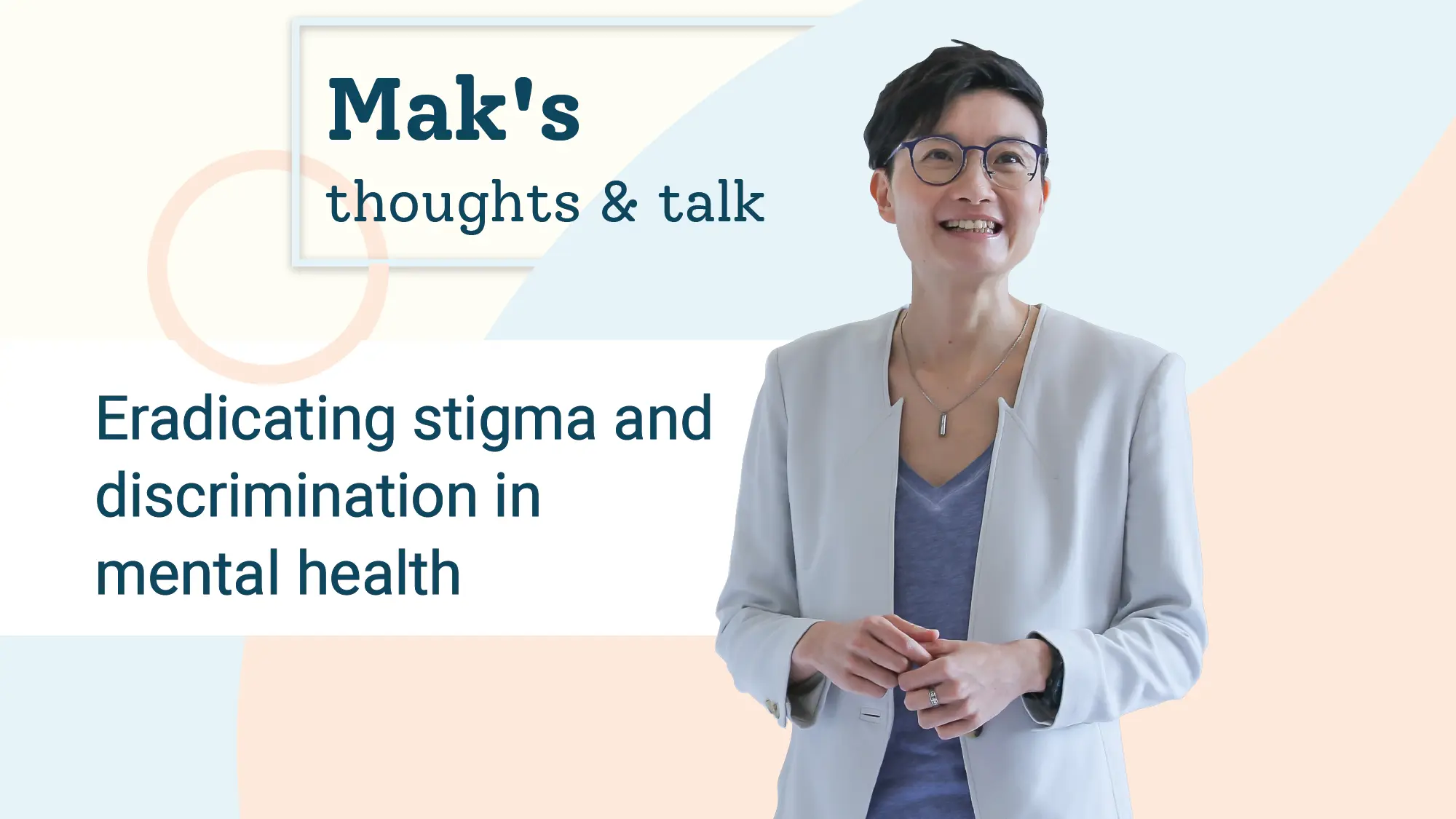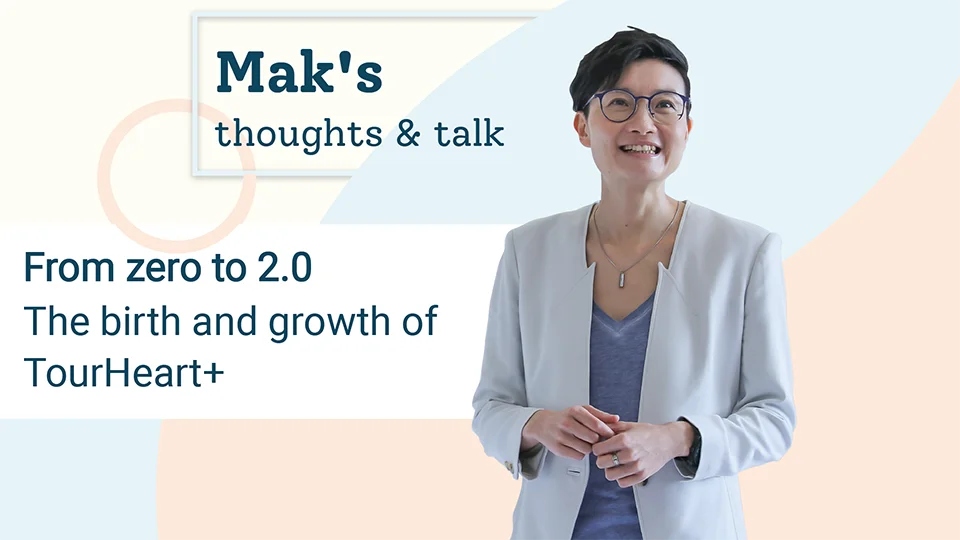The theme of this year's World Mental Health Day (October 10) is "Making Mental Health for All a Global Priority," and the major focus is how to eliminate stigma towards mental illness, a question mentioned in my previous blog.
On this year’s World Mental Health Day, The Lancet Commission Report on Ending Stigma and Discrimination in Mental Health was released (full report here). I was one of the co-authors of the report and a member of the Commission’s Advisory Board. This report brought together people with lived experience of mental health conditions, researchers, and practitioners to synthesize the impact of stigma and make recommendations to end mental health stigma and discrimination.
There are two key points in the report: first, stigma is worse than the condition itself; second, people with lived experience matter and should be enabled to play active roles in stigma reduction. These two points respond to the last question of my previous blog: What can stakeholders in positions of authority do to eliminate stigma?
The government
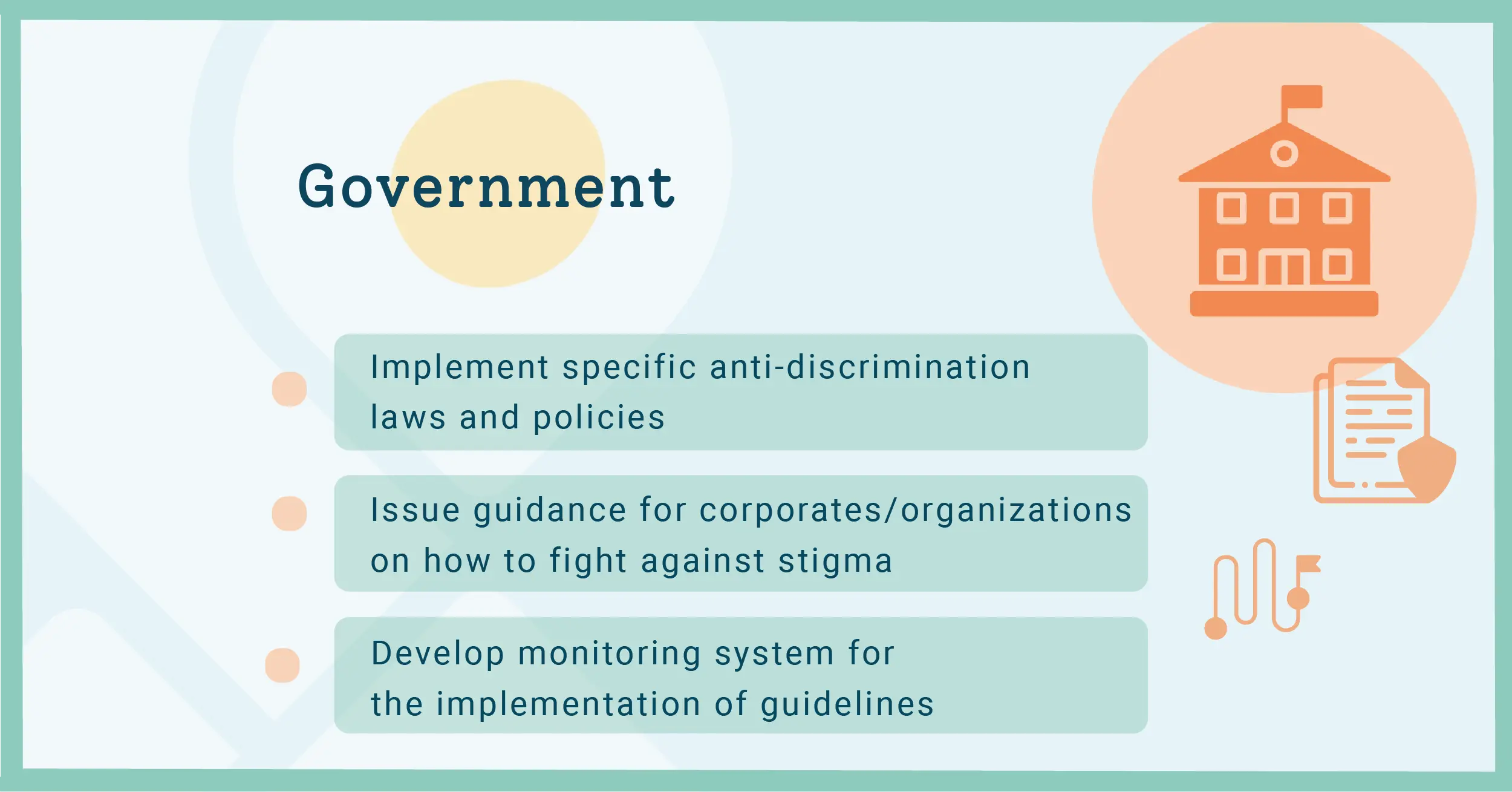
Nowadays, if workers want to file a complaint against their employer for discrimination during a variety of work situations, including hiring, firing, promotion, training, wages and benefits, the odds are stacked against them. The main reasons why plaintiffs in labor law cases struggle so much include difficulties in presenting compelling evidence and the absence or weak implementation of specific laws that can prevent different types of discriminatory practices in the workplace.
Employment is one of the drivers in the mental health journey. The government should review and amend existing legislation as soon as possible to provide appropriate protection and rights for people with lived experience and to close the legal loopholes that contribute to systemic stigmatization and discrimination. Concurrently, clear guidelines should be issued to support corporates to implement fair recruitment and mental health friendly HR policies and to monitor their implementation accordingly to ensure that taking up social responsibility is not just a lip service.
In the law-making process, more resources should be allocated to investigate and study the challenges and needs of people with lived experience in the areas of employment and community participation. The voices of people with lived experience should be widely included in the process so that they can actively participate in making the society a fairer one.
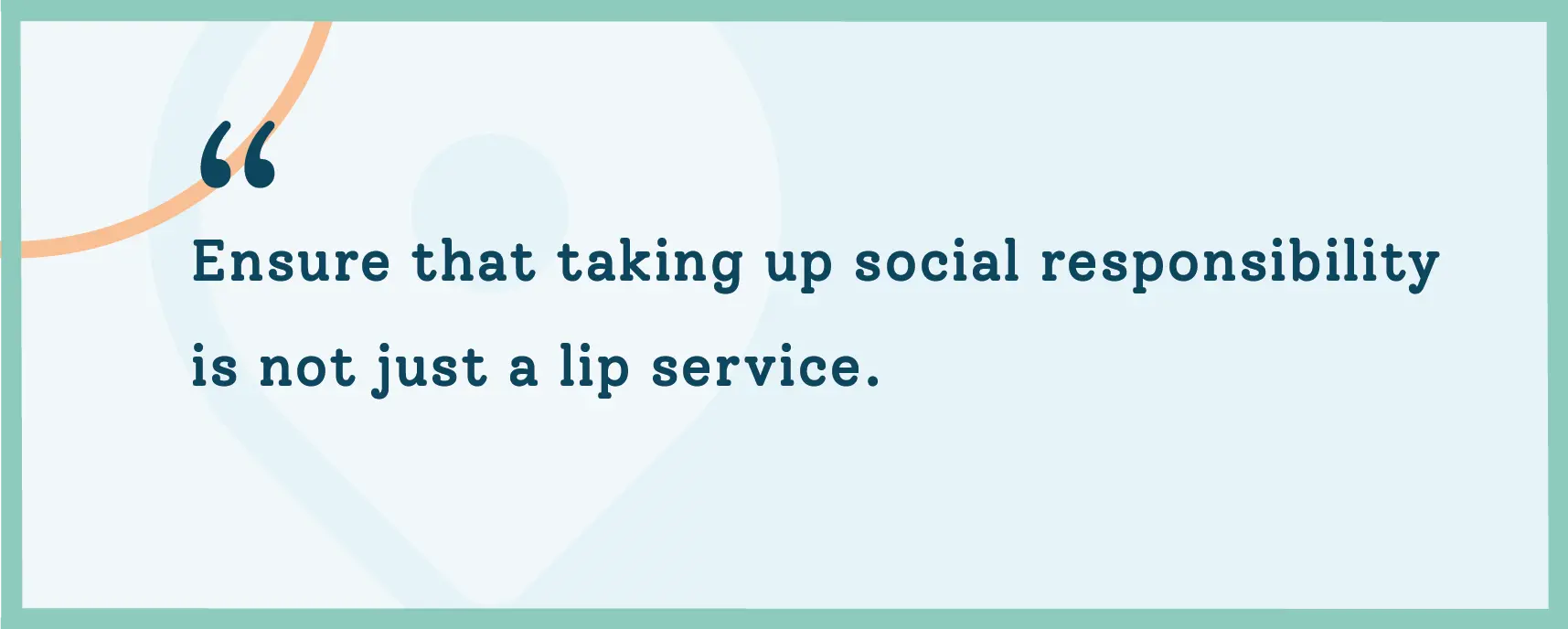
Employers
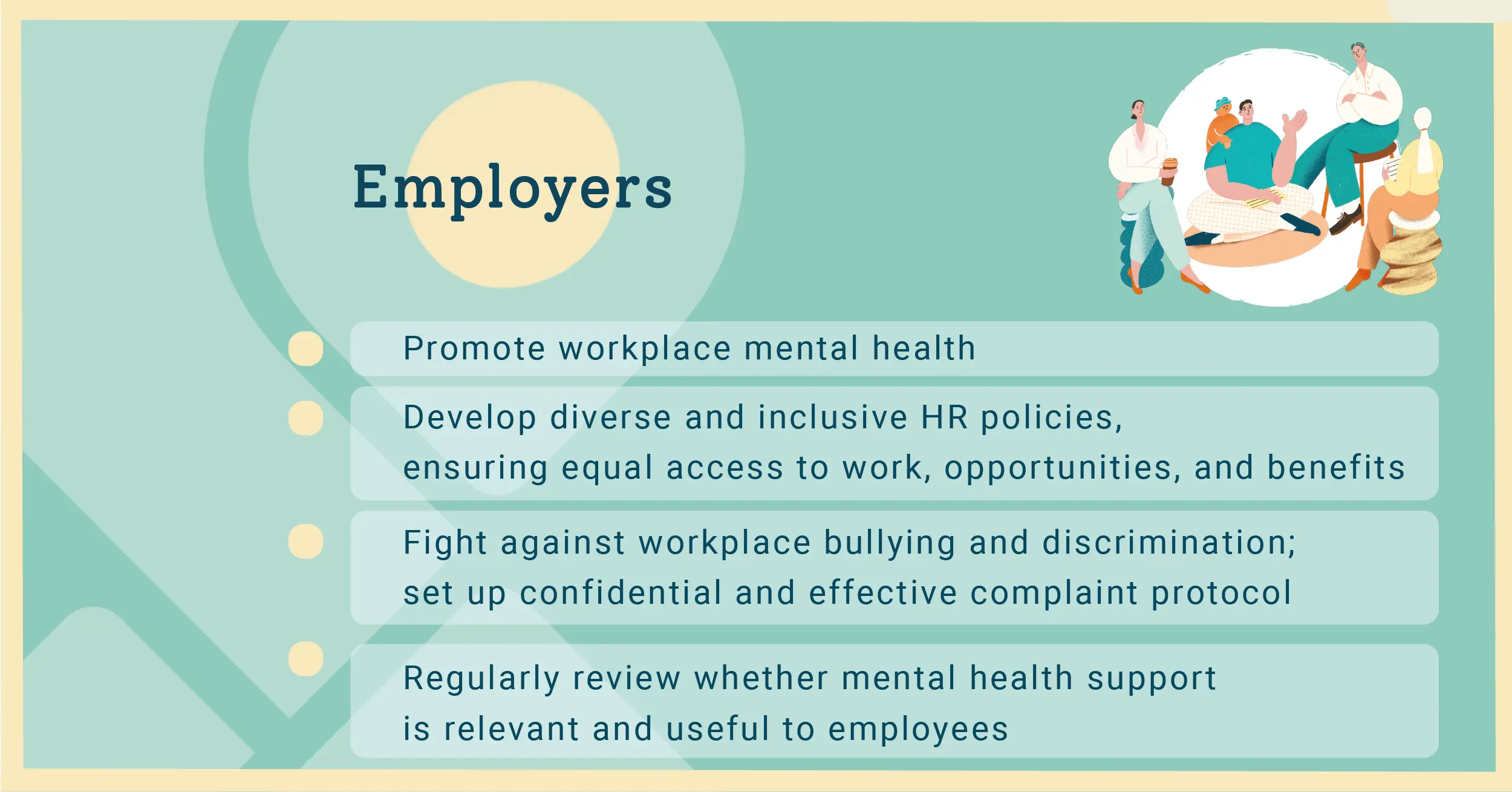
Supporting mental health in the workplace is no longer a nice-to-have but a necessity. Employees’ performance and mental health are equally important and interlinked; they are not robots chasing numbers with no social costs. Employers have an important role in maintaining a mental health friendly workplace environment. They need to be more proactive in developing an open, diverse, respectful company culture with clear guidelines against workplace bullying and discrimination.
A mental health friendly environment can be built in many ways, but it is best to begin by establishing fundamental policies and mechanisms that ensure fair recruitment, people-oriented HR policies, confidential and effective complaint protocol, and open communication channels for all levels of staff.
The corporates can also review the adequacy and effectiveness of their existing mental health resources. In recent years, many large corporations offer Employee Assistance Program (EAP) to their staff. However, the utilization rate is expectedly low due to low employee awareness of such service, concern about privacy, and stigma towards help-seeking and mental health conditions.
While offering EAP can be one of the resources to support mental health, workplace mental health requires much more than that. To begin, employers and managerial staff are encouraged to integrate mental health into relevant policies, be flexible in grooming employees to promote their development, and to regularly review whether support is relevant and useful to employees’ changing needs.
Mass Media
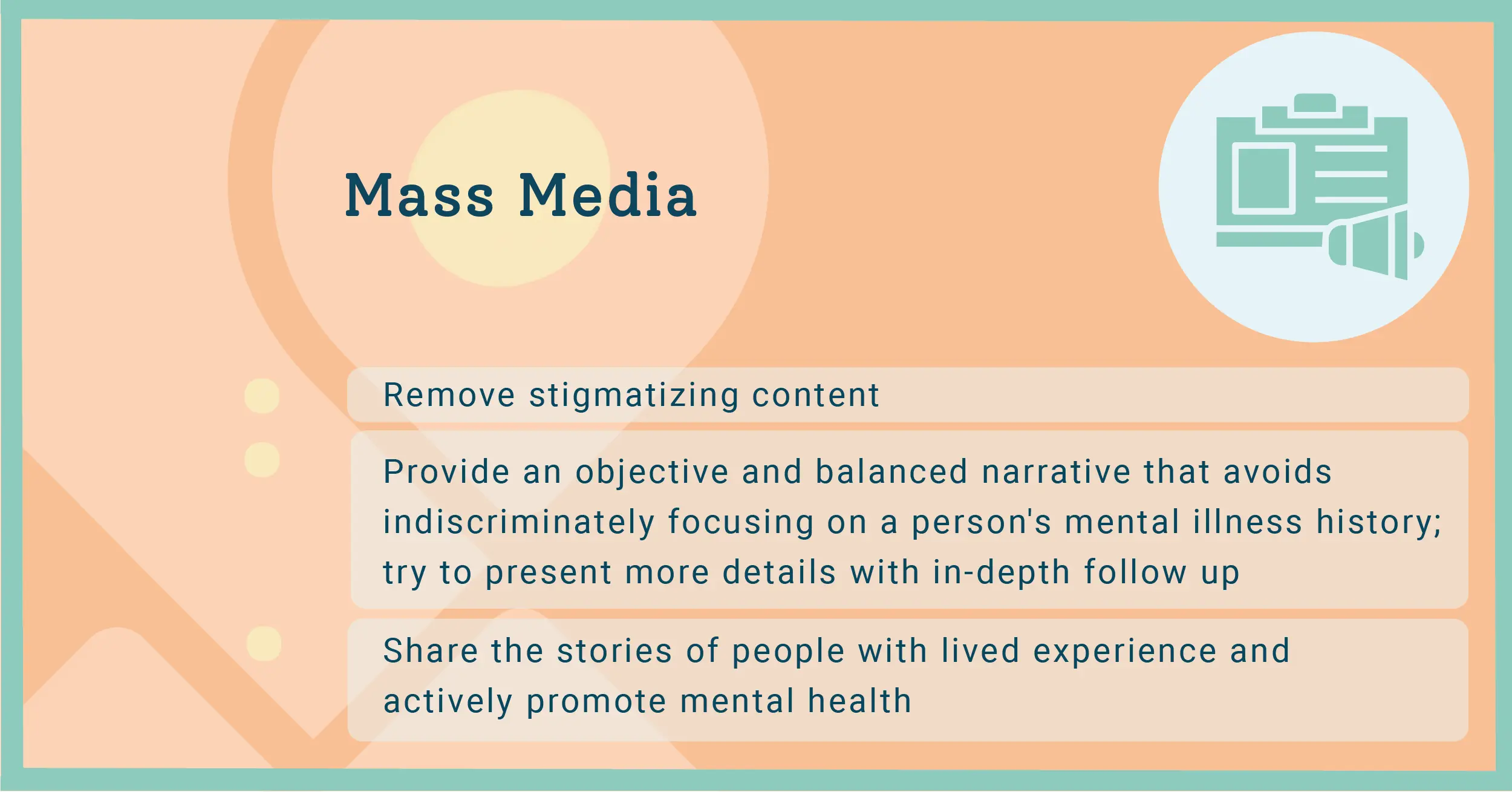
The mass media is undoubtedly an important influence in shaping the culture, social norms, and perceptions towards diverse sociocultural groups. For example, when it comes to reporting of crimes, suspects’ mental illness history is often emphasized in the headlines and they are often associated with such labels as "violent," "dangerous," "unpredictable," "uncontrollable,"” ignorant,” and” incapable”. Although the connection between mental illness and violence may not be as high as media portray it to be, such oversimplification of causality perpetuates stigma of mental illness and overlooks other characteristics of people with lived experience. Such portrayal obscures the reality and our understanding of each person holistically.
Media outlets are suggested to carefully consider the choice of words, avoid indiscriminately focusing on a person's mental illness history, and provide follow-up investigation of the event to ensure that the voice of people with lived experience are heard. Our words reflect our values and shape our thoughts, so let’s be mindful with our intention and choice of words.
Numerous research has demonstrated that interpersonal contact and first-person stories help overcome misconceptions and reduce stigma. If people’s lived experience is given more weight in the media, the public will have more channels to understand mental health and eliminate stigma.


